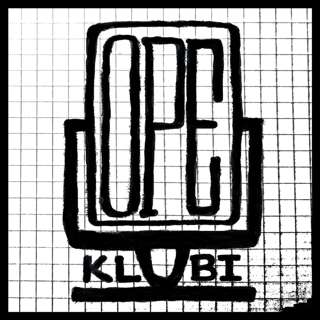
Stevphen Shukaitis, “The Composition of Movements to Come: Aesthetics and Cultural Labor after the Avant-Garde” (Rowman and Littlefield, 2016)
How is the notion of the avant-garde in art relevant today? What can contemporary social movements learn from the Situationists? What is the meaning of artistic value to forms of resistance? These, an...
5 Loka 201639min

Stuart Elden “Foucault’s Last Decade” (Polity Press, 2016)
Why did Michel Foucault radically recast the project of The History of Sexuality? How did he work collaboratively? What was the influence of Antiquity on his thought? In Foucault’s Last Decade (Polity...
21 Syys 201649min

Mary Hawkesworth, “Embodied Power: Demystifying Disembodied Politics” (Routledge, 2016)
How can we explain the “occlusion of embodied power” and “lack of attention to race, gender, and sexuality” in the discipline of political science, a field “that claims power as a central analytical c...
16 Syys 20161h 3min

Darian M. Parker, “Sartre and New Child Left Behind: An Existential Psychoanalytic Anthropology of Urban Schooling” (Lexington, 2015)
Darian M. Parker joins the New Books Network to discuss his recently published book, Sartre and No Child Left Behind: An Existential Psychoanalytic Anthropology of Urban Schooling (Lexington Books, 20...
12 Syys 201636min

Matt Dawson “Social Theory for Alternative Societies” (Palgrave, 2016)
What can social theory offer to visions of an alternative society? In his new book, Social Theory for Alternative Societies (Palgrave, 2016), Dr Matt Dawson, a Lecturer in Sociology at the University ...
9 Syys 201641min

Ibram X. Kendi, “Stamped from the Beginning: The Definitive History of Racist Ideas in America” (Nation Books, 2016)
Ibram X. Kendi is an assistant professor of African American history at the University of Florida. Stamped from the Beginning: The Definitive History of Racist Ideas in America (Nation Books, 2016) of...
8 Syys 201657min

John A. Gronbeck-Tedesco, “Cuba, the United States, and the Cultures of the Transnational Left, 1930-1975” (Cambridge UP, 2015)
John A. Gronbeck-Tedesco’s new book, Cuba, the United States, and the Cultures of the Transnational Left, 1930-1975 (Cambridge University Press, 2015), reaches across the Atlantic ocean and connects j...
29 Elo 201650min

Jean Chalaby, “The Format Age: Television’s Entertainment Revolution” (Polity, 2015)
Television had been transformed by the rise of the format. In The Format Age: Television’s Entertainment Revolution Jean Chalaby, Professor of International Communication at City University London, ch...
29 Elo 201641min















